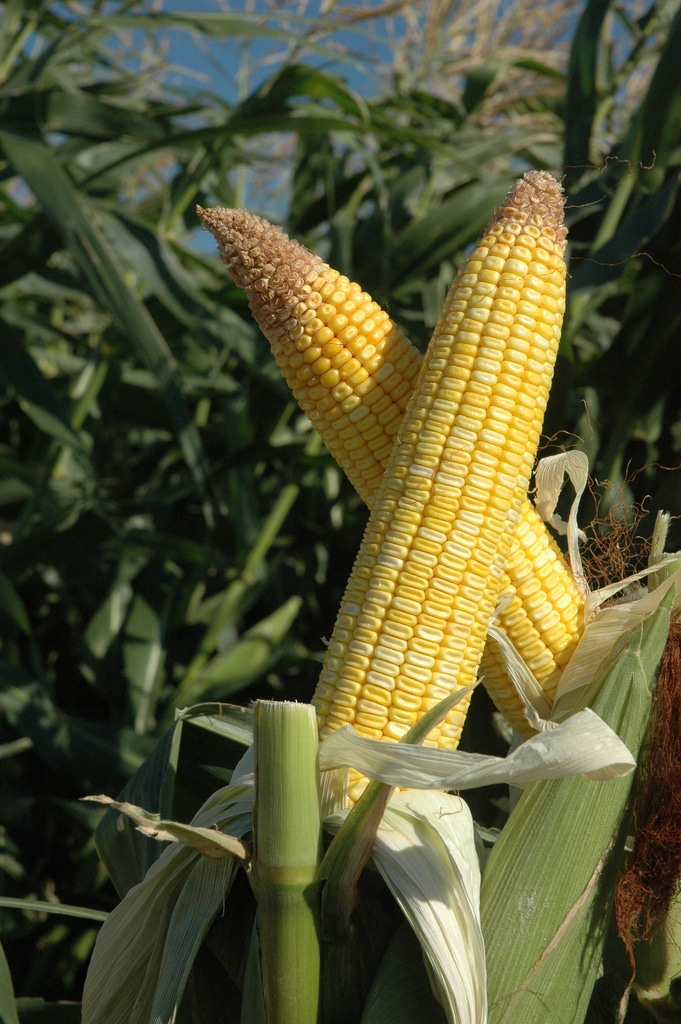July 13, 2015

Last week, my hometown’s newspaper reprinted an article from The Washington Post titled, “Why we’re so scared of GMOs.” Written by Roberto A. Ferdman, the article referenced Chipotle’s recent decision to no longer serve food made with GMOs. Recognizing the consumer fear and misunderstanding, Ferdman explains how the scientific community has a lot of confidence in GMOs.
Ferdman writes, “There is now near unanimity among scientists that GMOs are safe to eat. The U.S. Food and Drug Administration, the World Health Organization and the American Medical Association have all said that GMOs are fine for consumption. Yet the divergence between scientists and the American public has only grown bigger. As of last fall, nearly 60% of Americans believed that GMOs were ‘generally unsafe.’ Back in 2000, the population was pretty much evenly split.”
In the interview, Jayson Lusk, Oklahoma State University agricultural economist, says natural and organic food producers oftentimes market their goods by slamming conventional agriculture.
“What brought it to everyone's attention was, quite frankly, the sellers of many natural foods and organic products,” Lusk says. “I don't want to say that they were stoking people's fears, but they kind of were, at least to the extent that that helps sales of their own products. So there was some of that advertising, and the advertising that pitched products as not containing GMOs, which raised consumer awareness.”

Photo Credit: Texas AgriLife
He goes on to point out exactly what is driving this fear behind GMOs.
“Most people don't have a lot of knowledge about GMOs,” Lusk says. “The average person hasn't spent much time thinking about it. Nonetheless, if they were to see a label about them, they would likely be averse to them. It's something that seems a little unnatural, and there's a psychological tendency to desire naturalness in food and avoid some forms of novelty in food. That plays into a psychological bias that we have against them. So it's not necessarily that people have a strong, innate aversion to GMOs, per se, so much as that they have a negative reaction to something that seems like an additive or unusual.”
You can read the Q&A with Lusk in its entirety here, but the interview got me thinking about whether or not GMOs — and the corresponding fear and misunderstanding consumers seem to have about GMOs — should be a concern for beef producers.
I’m afraid the answer is yes. Any time one segment of agriculture is attacked, if it doesn’t directly affect us, it’s human nature to sigh a breath of relief knowing that the bullseye isn’t on our chest. However, because livestock are the biggest consumer of corn, if defending GMOs is an issue for corn producers, then it’s certainly an issue for beef producers, as well.
Besides, we are already well-versed in trying to educate the public about beef. Cattle producers have been the target of many attacks over the years. Remember lean, finely-textured beef? How about BSE? And of course, we can’t forget beef being linked to cancer, heart disease, diabetes, water waste, and greenhouse gas emissions.
We are constantly trying to correct a misinformed, sensationalist media, and in some ways, I think the beef industry is making a lot of progress with the general public when it comes to folks loving beef as a nutritional and delicious source of protein.
My point is, if we want to be strong advocates, we need to ask ourselves if we are prepared to discuss, defend and educate on other topics, one of which is GMOs. If you feed conventional corn to your cattle, there may come a day where you will have to label your beef as containing GMOs because regulations for mandatory GMO labeling demand it.
On that topic, Lusk offers some of his views on whether GMOs should be added to a food label.
“If there's some demonstrable health or safety risk, I think it's without question a must. That's true for, say, peanuts, because so many people are allergic. It's also true of nutritional labels, because we know that the number of calories and other nutrients you consume has a direct relationship to your health. Those are legitimate reasons to label foods, he says.
“But since the scientific community is more or less in agreement that GMO crops are no more harmful than traditional crops, it is less clear what is the purpose or benefits of a label. Now, voluntary labels are another thing. There are all sorts of voluntary labels out there. There are many things that people care about individually, and are willing to pay more for. There's a pretty healthy market for voluntary non-GMO products, and I don't see anything wrong with that. That's not to say that I don't see abuses of people's trust. I have seen salt labeled as non-GMO, when salt, by definition, cannot be genetically modified, since it's a mineral and doesn't contain DNA.”
It’s time to “beef up” your advocacy toolkit and be prepared to answer consumer questions about GMOs, if they should arise. What do you think? Is this a topic you’re well-versed on and could discuss with consumers or the media if questioned? Does the beef industry have a dog in this fight? Share your thoughts in the comments section below.
The opinions of Amanda Radke are not necessarily those of beefmagazine.com or Penton Agriculture.
You might also like:
Picture perfect summer grazing scenes from readers
How to prevent & treat pinkeye in cattle
You May Also Like



